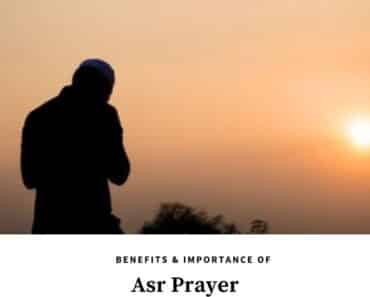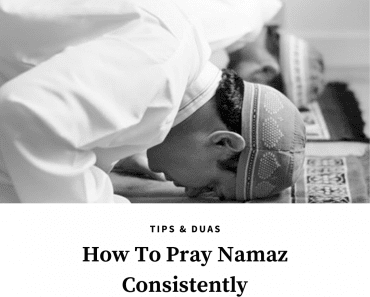Islamic quotes on sajda: Sajda in Islam refers to prostration to Allah SWT alone during obligatory or Nafil Salah in the direction of Ka’ba, Makkah. It can only be done before Him, the Almighty and not anyone else.
Sajda is the proof of our Creator’s Greatness as we wouldn’t show humility to anyone unless we think of someone greater than us. It is to put yourself out in front of Him humbly and shed every ounce of arrogance that may have been residing in us.
Whats is Importance of Sajda in Islam?
When in sujood, Muslims glorify the existence of Allah SWT as it is a promise of our devotion to Him alone. During such a spiritual state, it is only Him and you and nothing in between. Every problem, every battle that you have been fighting for long, fade away when you bow down before your One True Lord, Allah SWT.
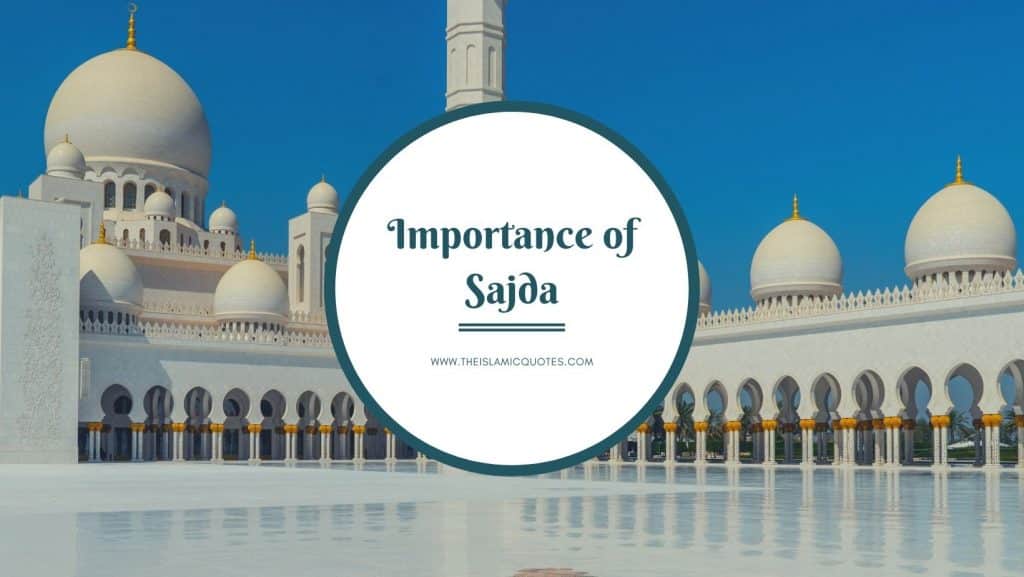
6- Position of Sajdah
Narrated by Ibn Abbas (R.A),
“I have been ordered to prostrate on seven bones i.e. on the forehead along with the tip of the nose and the Prophet pointed towards his nose, both hands, both knees and the toes of both feet and not to gather the clothes or the hair.”
(Bukhari and Muslim)
5- Sajda in Quran
Everything Prostrates Allah: Falling in Sujood is the highest level of humility one could show to Allah SWT. He in His Quran has mentioned several times that everything, living or not prostrate before Him and glorify His existence.

Sajda, an act of Worship: When we prostrate during salah, we do it as a part of our prayers. But we do not realise is that our Sajda should be like as our whole being is prostrating Allah SWT. It is an act of Worship that one carries out with a firm belief in Allah’s Omnipotence.
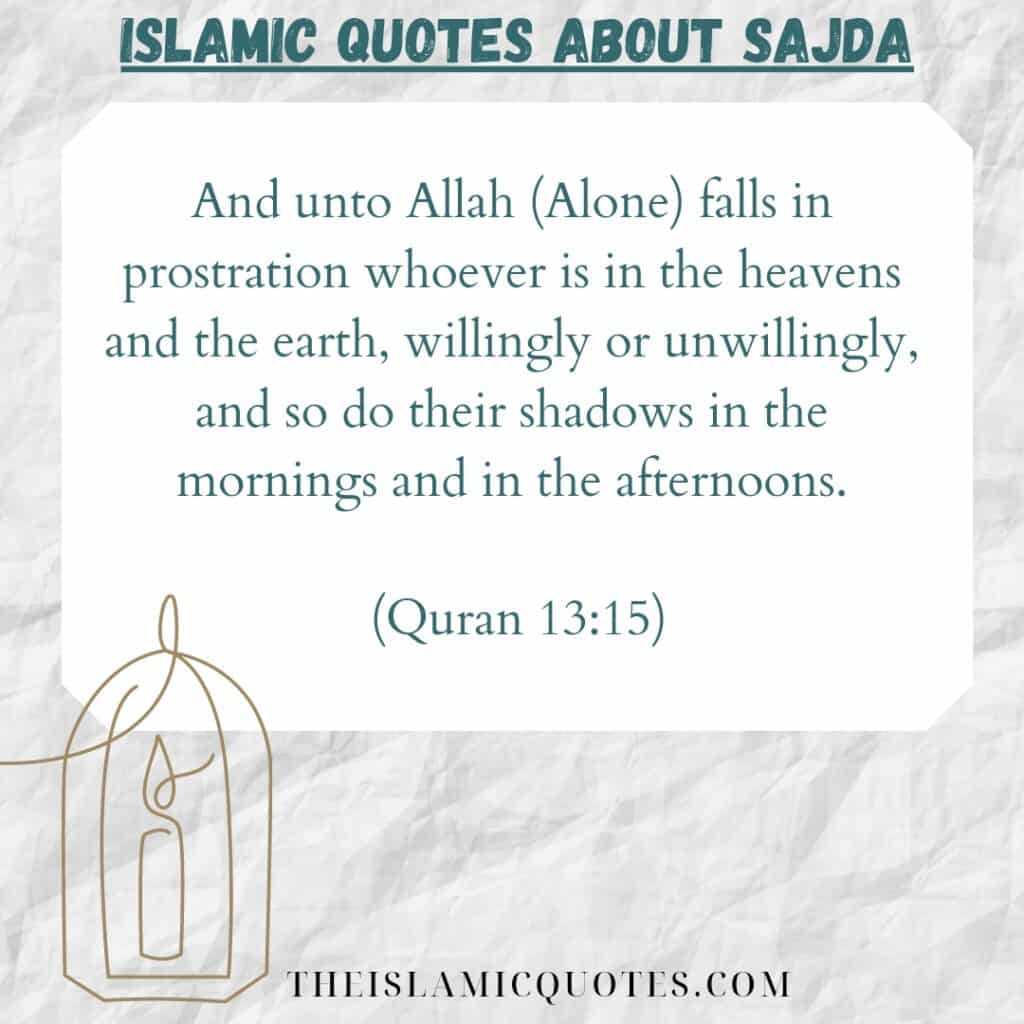
Sajda, a Sign of Devotion to Allah: In sujood, a person completely and utterly devotes oneself to the praises of Allah SWT. It is a promise to have iman on His signs and bow down in gratitude and humility. Here are some qualities that Allah loves.

4- Types of Sajdah
What does Sajda mean to me?
A question that one should often ask himself. Is it an act that we perform out of duty while praying or it is something very close to our hearts?
If the answer is latter then you will understand the true essence of bowing down your head in front of Allah SWT. Your heart will desire to perform sujood when it fills with gratitude for Rabb ul Alimeen.
There are three types of Sujood.
1: Sajda Shukr (Sajda of Gratitude): When you have been waiting for a long time for a piece of good news, or your patience brings about a beautiful result, or your duas are answered by Allah SWT most pleasingly, your heart fills with shukr and gratitude for the Lord of The Universe.
You immediately leave everything to present yourself in sujood to Glorify The Almighty, who has blessed you with His bounties. Because everybody blessing and good tiding come from Him alone.
{Whatever you have of blessing – it is from Allah}
[16:53]
There’s no condition or requirement of Taharat for Sajda e Shukr. Because it is performed immediately upon hearing good news or a blessing. Therefore there is no specific time or place to perform this Sajda.
Upon the authority of Abu Bakrah
Whenever the Prophet (sal Allaahu alayhi wa sallam) was pleased by a matter or was given the glad tidings of a matter, he would go into prostration as a form of Shukr to Allah.
2: Tilawat e Sajda (Sajda of Recitation of Quran): When the Quran is recited, fourteen Ayahs mention prostration to Allah SWT. Therefore it is Wajib to perform Sajdah immediately or later with the following conditions.
- The person should do Wudhu.
- One should make an intention of Sajda e Tilawat
- Hands should not be raised like in Salah. The person should only say Allah u Akbar and go down in prostration.
- Supplication of Sajda shall be recited.
- Rise back with Allah u Akbar and make Salam like that in Salah.
The Prophet PBUH said,
“Once, a person prostrates himself after reading a verse requiring the performance of sajdah, the shaitan starts crying and wailing in a corner, saying: ‘Alas! The children of Adam were enjoined to perform sajdah and they carried it out, and become entitled to enter Paradise, but I refused to do so and was condemned to Hell.’” (Muslim and Ibn Majah)
3: Sajda e Sahu (Sajda of Oversight/Omission: When someone makes a mistake during salah unintentionally like forgetting the number of Rakats performed, reciting some other surah instead of Surah Fatiha, the Sajda Saju becomes wajib for the person with the following requirements.
- The person should perform salah till the last Rakat and recite Atahyat and durood.
- Make a single Salam to the right side and do additional two prostrations.
- Recite Atahyat, durood and dua and make two Salams on each side.
Narrated `Abdullah bin Buhaina:
Allah’s Apostle got up after the second rak`a of the Zuhr prayer without sitting in between (the second and the third rak`at). When he finished the prayer he performed two prostrations (of Sahu) and then finished the prayer with Taslim.
Hadith Bukhari
3- Supplications of Sajda
Do go through our earlier post on tips for acceptance of duas.
اللَّهُمَّ لَكَ سَجَدْتُ وَبِكَ آمَنْتُ وَلَكَ أَسْلَمْتُ اللَّهُمَّ أَنْتَ رَبِّي سَجَدَ وَجْهِي لِلَّذِي خَلَقَهُ وَصَوَّرَهُ وَشَقَّ سَمْعَهُ وَبَصَرَهُ تَبَارَكَ اللَّهُ أَحْسَنُ الْخَالِقِينَ
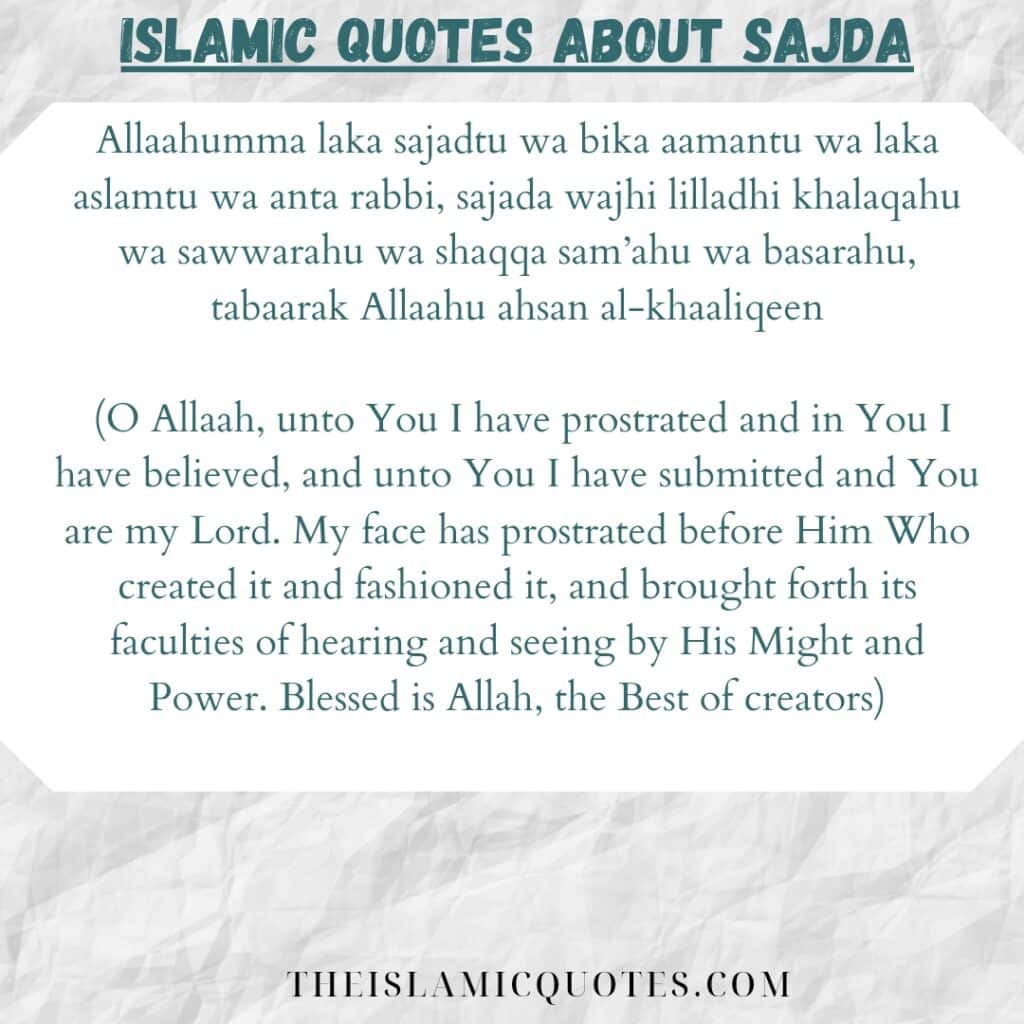
سُبْحَانَ رَبِّيَ الأَعْلَى

2- Spiritual Benefits of Sujood
Proximity to Allah: When you offer Salah, you prostrate ad a ritual and an important part of your prayer. But when you think about its significance, you will realise that you are bowing down in front of the Al-Mighty, Lord of all the worlds.
When you prostrate, you are in awe of His existence. There is a sense of acceptance that everything belongs to Him alone and He’s the One who will remain forever. We have been told by our Prophet Muhammad PBUH that during prostration, we are near to our Allah SWT.
Therefore, we need to our aside every inch of pride that our soul possesses and put our foreheads on the ground and praise and Glorify Him. And ask Him whatever we desire and talk about all the problems creating ripples in our life.
Here are some more duas to achieve nearness to Allah.
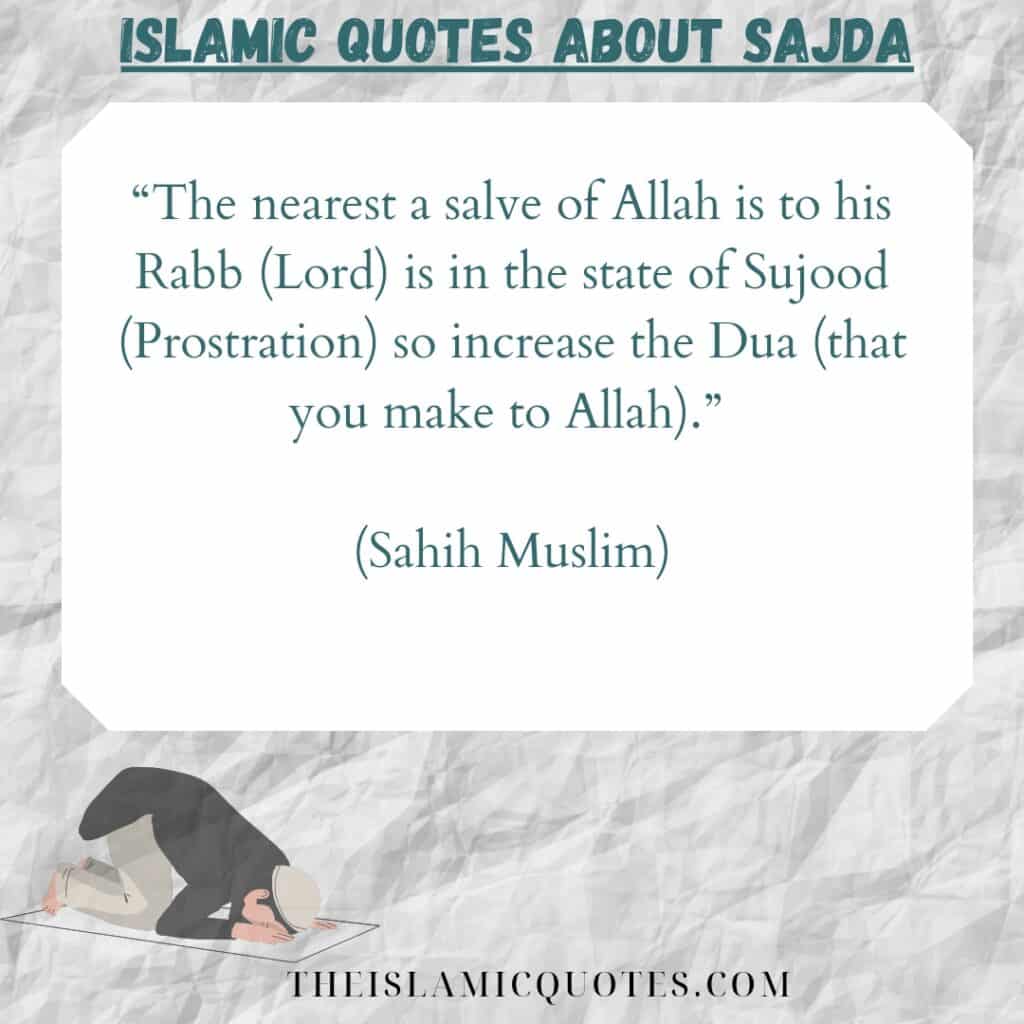
Rewards and Status: We spend our lives striving hard to earn Jannah. We continue to give Sadaqah, be good to people around us but never care about the most important Pillar of Islam, which is Salah.
Salah cleanses our soul and help us achieve Allah’s pleasure. When We pray Salah, we should not offer it robotically. Instead, we should stay focused on what we are reciting and each step should be performed humbly. As we are coming towards Allah SWT who is the Al-Mighty!
When we turn ourselves towards our Lord, humble before him, prostrate with our hearts, soften our tongues with gratitude, Allah will reward us in unimaginable ways and rise us in status.

Forgiveness: This world is our temporary abode and we spend our lives here as a test. We do not know when will Allah SWT call us to Him. This fear of returning to Him keep us striving hard for Jannah.
As Allah SWT has mentioned that this life is a test for the believers, we may fall prey to the darkness of sins. We make mistakes, go against the rules of Islam but most of us come back to the right path, crying for the forgiveness of Allah SWT.
Sujood makes us closer to Allah SWT and it may become the reason for forgiveness of any of our sins. As prophet Muhammad PBUH had mentioned that when we pour our hearts out in sujood and recite the supplications of glorification of Allah, He will raise us in our ranks in Jannah and forgive one of our sins.
I would also recommend that you go through these Islamic quotes on forgiveness.

1- Physical Benefits of Sujood
In the position of Sujood, the forehead touches the ground and the arms are bent forward which brings the muscles of the body in active motion.
Forearm muscles: During Prostration, the arms are stretched forward in a slightly elevated position which gives the muscles of the upper limbs some exercise and help in blood circulation.
Blood Circulation in Brain: When in Prostration, the brain becomes lower than the heart which does not happen in any position. This unique position of Sajdah helps the blood to flow directly to the brain rapidly, which helps I’m the nourishment of the brain. This leaves a positive impact on memory, concentration and other cognitive functions.
Neck muscles: The neck during prostration bear the weight as the head is on the ground which gives the muscles of the neck become stronger.

